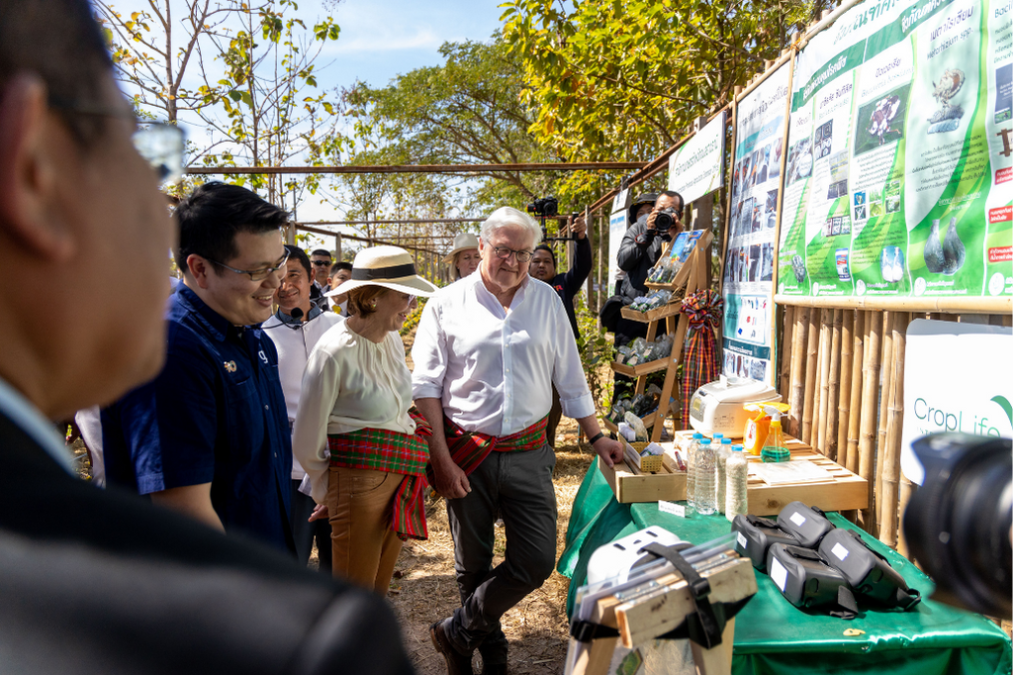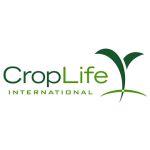In early 2024, German President Frank-Walter Steinmeier and his delegation visited the Inclusive Sustainable Rice Landscapes (ISRL) project sites to see firsthand the transformative power of innovative approaches in rice farming and highlight the government’s support for climate-smart agriculture. The ISRL project is advancing sustainable agricultural practices for Thai farmers through virtual reality training.
Advancing sustainable rice farming
As Thailand is the sixth-largest producer of rice in the world, connecting rice farmers in the country with innovative tools and techniques has the potential to make a big impact on sustainability and livelihoods.
Ubon Ratchathani in the country’s northeastern province is the nation’s leading rice producer, enjoying high yields of rice production due to increasing mechanised farming operations. However, with the dramatic growth of farming over the past decades in the country leading to deforestation and high GHG emissions, Ubon Ratchathani and other rice-producing provinces in Thailand also experience significant environmental degradation, declining biodiversity and weakened ecosystems.
During President Steinmeier’s visit, a group of 30 farmers participating in the programme showcased their new skills. They covered topics such as crop protection safety practices and the safe disposal of pesticide
Reflecting on the visit Dr Ernst Reichel, Ambassador of the Federal Republic of Germany to Thailand told UNEP: “The visit to the Inclusive Sustainable Rice Landscape Project was one of the highlights of President Steinmeier’s stay in Thailand.”
In its inaugural year, the ISRL project has already reached 6,000 farmers. Over the next four years, it aims to benefit 45,000 farmers covering 90,000 hectares of rice farmland. The project is run by the German Development Cooperation (GIZ), and supported by CropLife International, the Thai Rice Department of the Ministry of Agriculture and Cooperatives, the UN Environment Programme and Olam Agri.
The ISRL project builds on the success of the Market-Oriented Smallholders Value Chain (MSVC Thailand) project, which trained over 19,000 farmers across 75,000 hectares on sustainable rice production. With a focus on integrated pest management and adopting low-emissions practices, ISRL aims to reduce costs and chemical pesticide use while also improving soil quality and ecosystems.
A new era for rice farming and sustainable livelihoods
Farmers joining the ISRL project are encouraged to help lower greenhouse gas emissions by implementing climate-smart rice farming practices and technologies. For instance, the use of Integrated Pest Management, which uses a combination of pest control techniques to enhance the efficacy of pest management and the use of alternate wetting and drying techniques shortens the period for irrigation resulting in reducing the intensive water volume needed for rice cultivation. The rice farmers also learn how to produce compost to use and sell while reducing the expense of chemical fertilisers.

Building on the ISRL project, as many as 90,000 hectares in Thailand are expected to adopt sustainable rice farming methods and other non-rice farming measures such as forest conservation and restoration, which can reduce more than three million tonnes of CO2 equivalent and 100 metric tonnes of toxic chemicals. The project will also help restore an estimated 30,000 hectares through agroforestry and diversified cropping by 2027.
With its innovative and sustainable approach, the ISRL project is helping to transform rice farming, shaping a sustainable, prosperous future for farmers, communities, and the environment.



